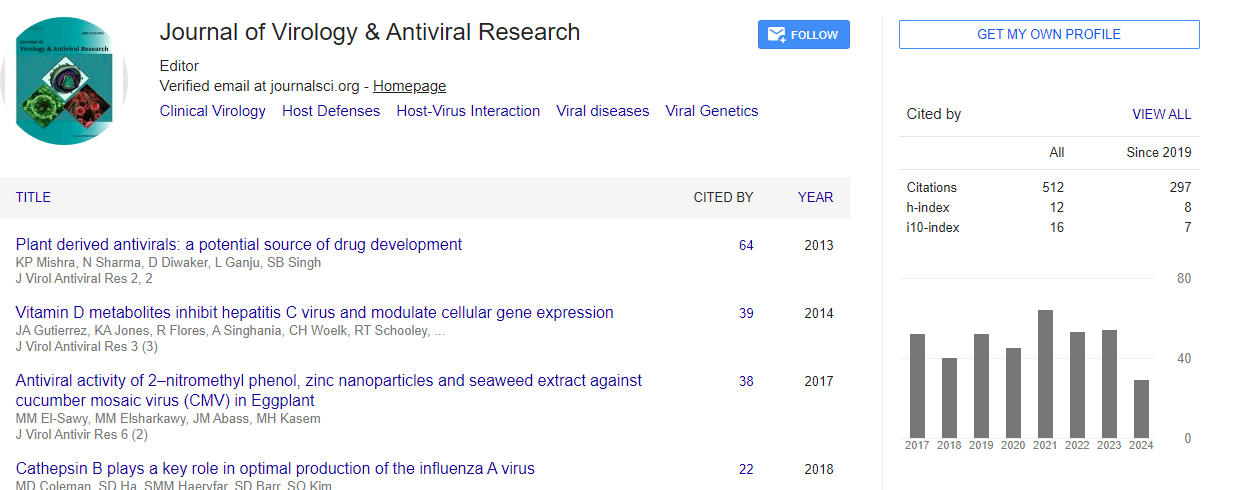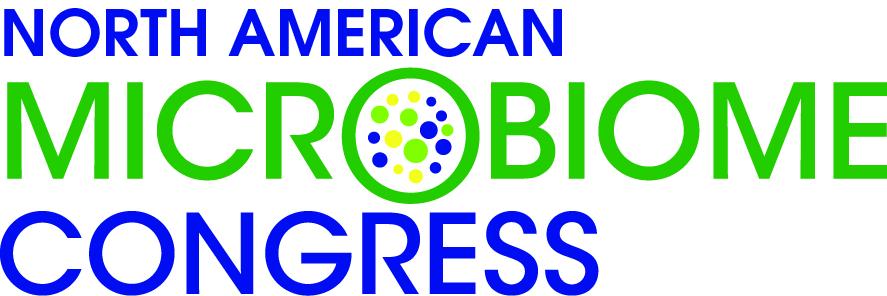Opinion Article, J Virol Antivir Res Vol: 12 Issue: 1
Current Advances and Challenges in Clinical Virology
Mercier Bogers*
1Department of Viroscience, Erasmus Medical University, Rotterdam, he Netherlands
*Corresponding Author: Mercier Bogers
Department of Viroscience, Erasmus
Medical University, Rotterdam, he Netherlands
E-mail: bogersmer@erasmusmu.nl
Received date: 16 February, 2023; Manuscript No. JVA-23-93057;
Editor assigned date: 20 February, 2023; PreQC No. JVA-23-93057 (PQ);
Reviewed date: 06 March, 2023; QC No. JVA-23-93057;
Revised date: 13 March, 2023; Manuscript No. JVA-23-93057 (R);
Published date: 20 March, 2023; DOI: 10.4172/2324-8955.1000670
Citation: Bogers M (2023) Current Advances and Challenges in Clinical Virology. J Virol Antivir Res 12:1.
Description
Clinical virology is a medical field that focuses on the study of viruses and their impact on human health. It involves the diagnosis, treatment, and prevention of viral infections. Clinical virologists use a range of techniques to identify and characterize viral infections, including microscopy, serology, and molecular diagnostics.
Over the past few decades, clinical virology has made significant advances in the diagnosis and treatment of viral infections. The development of rapid diagnostic tests, such as Polymerase Chain Reaction (PCR), has made it possible to quickly and accurately diagnose viral infections. This has improved patient outcomes by allowing for earlier treatment and reduced transmission of the virus.
In addition to diagnosis, clinical virologists also play a critical role in the development of new antiviral therapies and vaccines. Recent advances in molecular biology and immunology have led to the development of new therapeutic approaches, including monoclonal antibodies and Ribonucleic Acid (RNA)-based vaccines.]
This clinical virology is a vital field that plays a critical role in the diagnosis, treatment, and prevention of viral infections. On-going research and development in this field will continue to improve patient outcomes and reduce the burden of viral infections on human health.
Advances and Challenges in Clinical Virology
Advances in viral diagnosis, antiviral therapy, viral epidemiology, and vaccines have significantly improved our ability to control viral infections. However, challenges remain, particularly in the development of new therapies and vaccines for emerging viruses. A continued focus on research and development in clinical virology is essential for our ability to control and prevent viral infections.
Here are some current advances and challenges individually described in clinical virology:
Advances
Development of rapid diagnostic tests: The development of rapid diagnostic tests has made it possible to quickly diagnose viral infections and initiate appropriate treatment. These tests are easy to perform and can provide results in a matter of minutes.
Next-generation sequencing: Next-generation sequencing technologies have revolutionized the field of virology, allowing researchers to sequence the entire viral genome in a matter of hours. This has led to the discovery of new viruses and the development of more effective treatments.
Novel antiviral therapies: Recent advances in antiviral therapies have led to the development of new drugs that can effectively treat viral infections. These drugs target specific viral proteins and can prevent the virus from replicating.
Challenges
Emerging viruses: The emergence of new viruses, such as SARSCoV- 2, poses a significant challenge to the field of clinical virology. These viruses can cause global pandemics and can have significant public health consequences.
Antimicrobial resistance: The emergence of antimicrobial resistance in viruses, such as influenza, is a significant challenge for clinicians. This can make it difficult to treat viral infections and can lead to increased morbidity and mortality.
Vaccine hesitancy: Vaccine hesitancy is a significant challenge in the field of clinical virology. This can lead to a decrease in vaccination rates and an increase in the prevalence of viral infections.
Overall, the field of clinical virology is rapidly evolving, and there have been several advances in the diagnosis and treatment of viral infections. However, there are also significant challenges that need to be addressed to ensure that effective treatments are available to those who need them.
 Spanish
Spanish  Chinese
Chinese  Russian
Russian  German
German  French
French  Japanese
Japanese  Portuguese
Portuguese  Hindi
Hindi 

